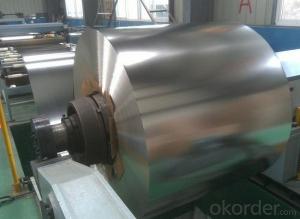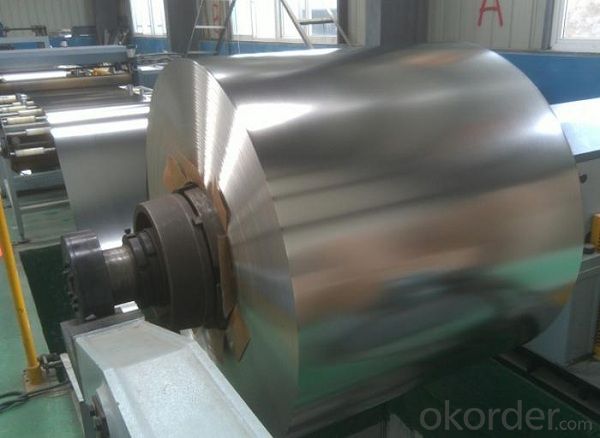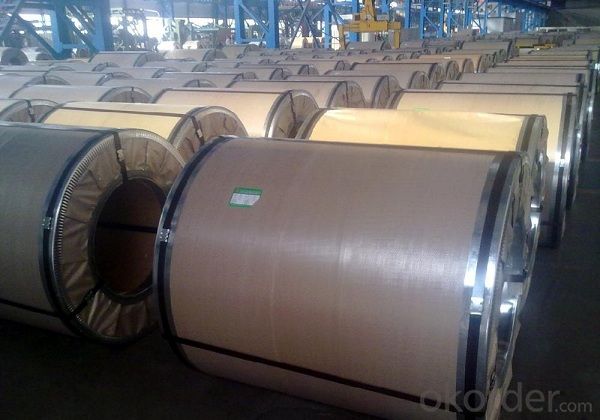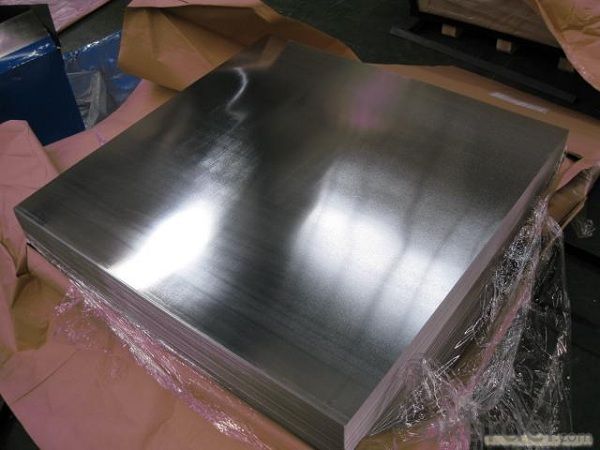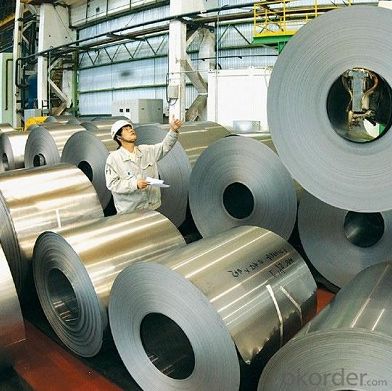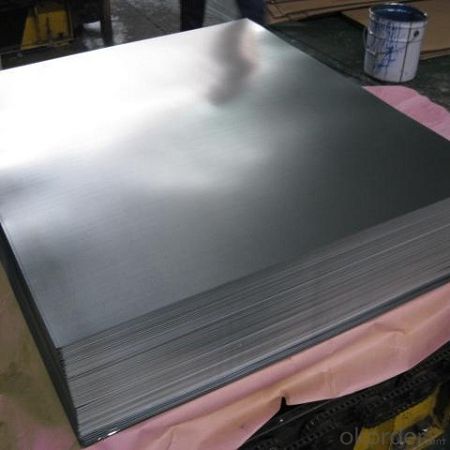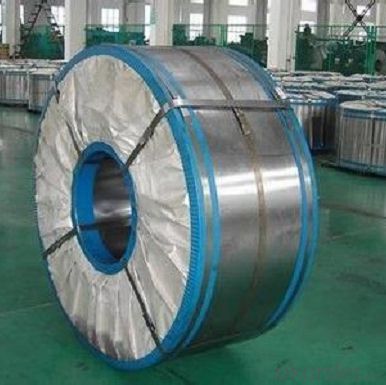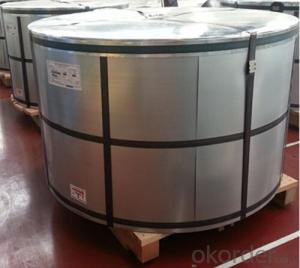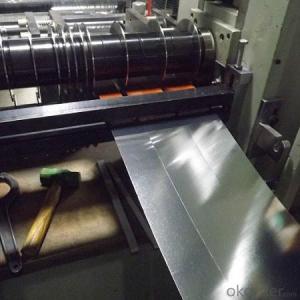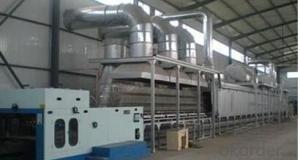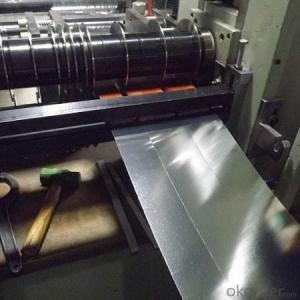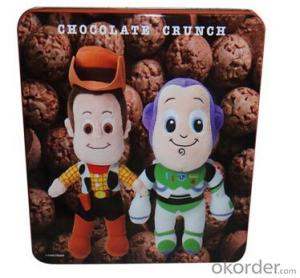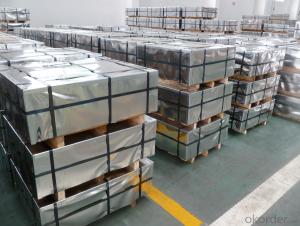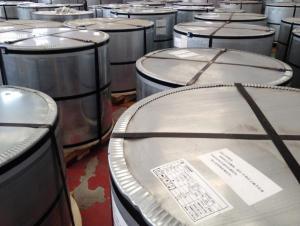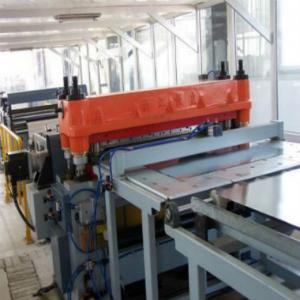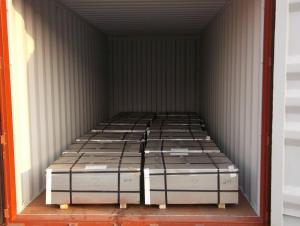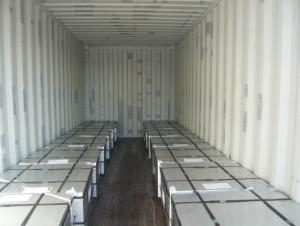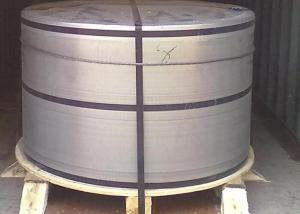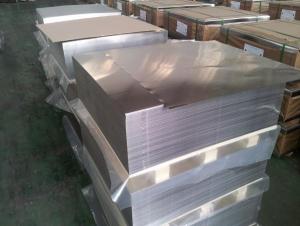Tinplate with Prime Quality For Making Chemicals and painting cans
- Loading Port:
- China main port
- Payment Terms:
- TT OR LC
- Min Order Qty:
- 50 m.t.
- Supply Capability:
- 40000 m.t./month
OKorder Service Pledge
OKorder Financial Service
You Might Also Like
Specification
Tinplate with Prime Quality For Making Chemicals and painting cans
1.Structure of Description
Electrolytic Tinplate Sheets is one of the metal packing materials, which is widely used for making painting cans ,chemical package cans , electrical cable ,battery and metal printing etc. For caps, there are some customers also need TFS, if you have some demand for TFS,also can contact with us.
2. Main Features
Steady and high quality
Fast shipment
Good experience for export work
For the surface, Plate uniform in thickness,uniform and smooth tin coating, without flaws,rusts,scratch,wave,nick of tin coating etc.
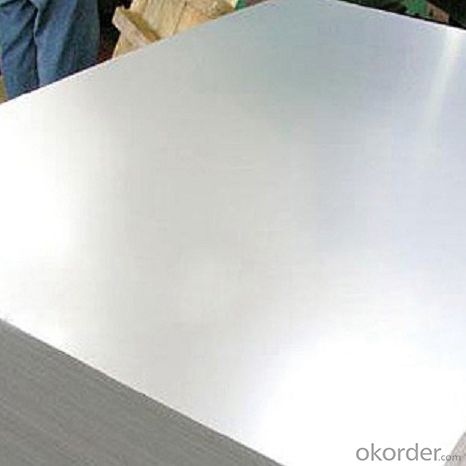
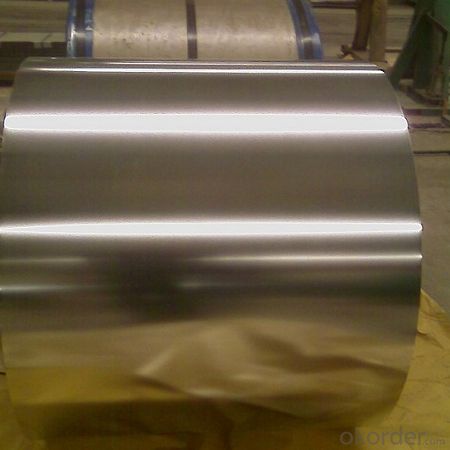
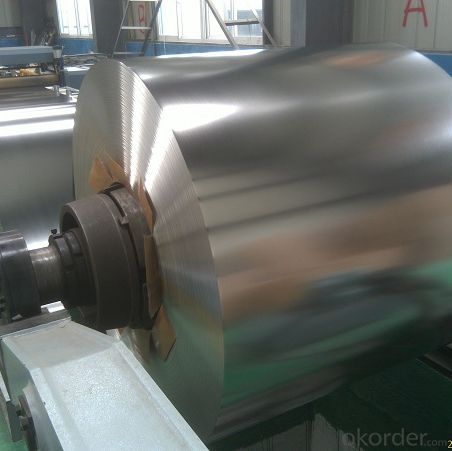
Specifications
| Type | MR, SPCC |
| Temper(BA&CA) | T1-T5, DR8-DR10 |
| Coating | 1.1-8.4g/m^2 |
| Thickness& Tolerance | 0.15-0.5mm(tolerance +/-0.01mm) |
| Width& Tolerance | 600-1010mm(tolerance +2/-0mm) |
| I.D | 508mm |
| Coil weight | 3-10MT |
| Passivation | 311 |
| Oiling | DOS |
| Surface finish | Bright, stone |
| Package | Seaworthy Export Standard Wooden Pallet |
| Standard | ISO 11949 -1995, JIS G3303,ASTM A623, BS EN 10202 |
| Special specifications are available on customers' requirements | |
Application
Tinplate is widely used for making all types of containers, electrical machinery parts and many other products.
- Chemicals and painting cans
- Dry food cans, such as fancy cans, biscuit cans, milk powder cans, tea cans,
- Sea food cans
- Crown corks, easy open ends
- Electrical machinery parts
- Bakeware and household kitchen parts
FAQ
What is CNBM ?
China National Building Materials Group Cooperation, as a leading state-owned enterprise with 3 billion USD and 40,000 staff in China, CNBM was established in 1984 under the administration of the state-owned Assets Supervision and Administration commission of the State Council. There are over 300 surbordinate factories and companies in our group; 2 public listed companies in Hong Kong, 4 Public listed companies in China mainland; 11 publicly listed companies in which CNBM has a substantial percentage of shares. The business scope of CNBM covers from Manufacturing and sales of building materials to scientific research and design, engineering, import and export trading.
Factory Introduction
CNBM as one of the largest suppliers in tinplate industry, offers clientss prime quality tinplate in both coil and sheets. With multi-plants and fully integraded production, the annual capacity of tinplate is 400,000MT.
To ensure the high quality if the tinplate, CNBM owns complete equipment series.
- Reversing cold rolling machines: 14 sets
- Continuous rolling machines: 2 sets
- BA furnaces: 50
- CA line: 1
- Tinplate production line: 2
- SA& DA reduced tinplate sheet: Available
CNBM also produce other steel products, such as cold-rolled steel, hot dip galvanized steel, color coated steel and tin free steel coils and sheets.
- Q: How does tinplate affect the overall barrier properties of packaging?
- Tinplate enhances the overall barrier properties of packaging by providing a protective layer that prevents oxygen, moisture, and light from permeating through the packaging material. This helps in preserving the quality, freshness, and shelf-life of the packaged products. Tinplate also adds strength and durability to the packaging, ensuring that it can withstand external pressures and maintain its integrity during transportation and storage.
- Q: How does tinplate withstand corrosion?
- Tinplate withstands corrosion due to the presence of a thin layer of tin coating on its surface. This tin layer acts as a barrier, preventing direct contact between the tinplate and the surrounding environment, thus protecting it from rust and corrosion.
- Q: How is tinplate recycled and what are the benefits of recycling?
- Tinplate is commonly recycled through a process called "tin can recycling." In this process, tin cans are collected, sorted, and then shredded into small pieces. The shredded tinplate is then melted down to remove any impurities, and the molten metal is poured into molds to create new tinplate products. The benefits of recycling tinplate are numerous. Firstly, recycling tinplate helps conserve natural resources as it reduces the need for mining and extraction of new raw materials. Additionally, recycling tinplate reduces energy consumption and greenhouse gas emissions compared to producing tinplate from scratch. Moreover, recycling tinplate reduces the burden on landfill sites, as tin cans can take years to decompose. Finally, recycling tinplate helps create job opportunities in the recycling industry, contributing to the economy. Overall, tinplate recycling is an eco-friendly and sustainable solution that brings multiple environmental and economic benefits.
- Q: Can tinplate be used for packaging pharmaceutical products?
- Yes, tinplate can be used for packaging pharmaceutical products. Tinplate is a type of steel coated with a thin layer of tin, which provides excellent corrosion resistance and protection. It is commonly used in the packaging industry due to its durability, strength, and ability to maintain product integrity. Tinplate containers can effectively safeguard pharmaceutical products from external factors such as moisture, light, and oxygen, ensuring their quality and shelf life.
- Q: Can tinplate be used for packaging luxury goods?
- Yes, tinplate can be used for packaging luxury goods. Tinplate is a versatile material that offers both functionality and aesthetic appeal, making it suitable for high-end products. Its durability, resistance to corrosion, and ability to maintain product freshness and quality make it an excellent choice for luxury packaging. Additionally, tinplate can be easily decorated and customized with high-quality printing and embossing techniques to enhance the visual appeal and create a premium look for luxury goods.
- Q: Can tinplate be used for packaging confectionery products?
- Yes, tinplate can be used for packaging confectionery products. Tinplate is a commonly used material for food packaging due to its durability, resistance to corrosion, and ability to maintain product freshness. It provides a safe and secure packaging option for confectionery items, ensuring a longer shelf life and preserving the quality of the products.
- Q: What do tinplate do?
- Maguchi Tetsuya is called tinplate, national standard GB2520:2008, is cold-rolled sheet steel, every square plated with commercial 1.1 g, 2.8g, 5.6g, 8.4g, 11.2gFor use, it can be used in food cans, beverage cans, chemical barrels, milk cans, electronic components, etc., is a widely used packaging materials.
- Q: How does the thickness of tinplate affect its strength and durability?
- The thickness of tinplate directly affects its strength and durability. Thicker tinplate tends to be stronger and more durable, as it can withstand greater external forces and resist deformation. Thicker tinplate also offers better protection against corrosion and can handle harsher environmental conditions. On the other hand, thinner tinplate may be more prone to bending or denting, and it may have reduced durability and resistance to damage.
- Q: Can tinplate packaging be used for pharmaceutical products?
- Yes, tinplate packaging can be used for pharmaceutical products. Tinplate is a durable and chemically resistant material that provides excellent protection against moisture, oxygen, and light, making it suitable for preserving the integrity and quality of pharmaceutical products. Additionally, tinplate packaging can be sterilized and is tamper-evident, ensuring the safety and security of the medication.
- Q: What are the main differences between tinplate and tinplate laminates in terms of product visibility?
- The main difference between tinplate and tinplate laminates in terms of product visibility is that tinplate is a single-layer material made entirely of tin, while tinplate laminates are a combination of tinplate and other materials such as plastic or paper. Tinplate has a higher level of product visibility due to its shiny and reflective surface, allowing the contents of the package to be easily seen. On the other hand, tinplate laminates may have reduced product visibility as the additional layers of material can obstruct the view.
Send your message to us
Tinplate with Prime Quality For Making Chemicals and painting cans
- Loading Port:
- China main port
- Payment Terms:
- TT OR LC
- Min Order Qty:
- 50 m.t.
- Supply Capability:
- 40000 m.t./month
OKorder Service Pledge
OKorder Financial Service
Similar products
Hot products
Hot Searches
Related keywords
